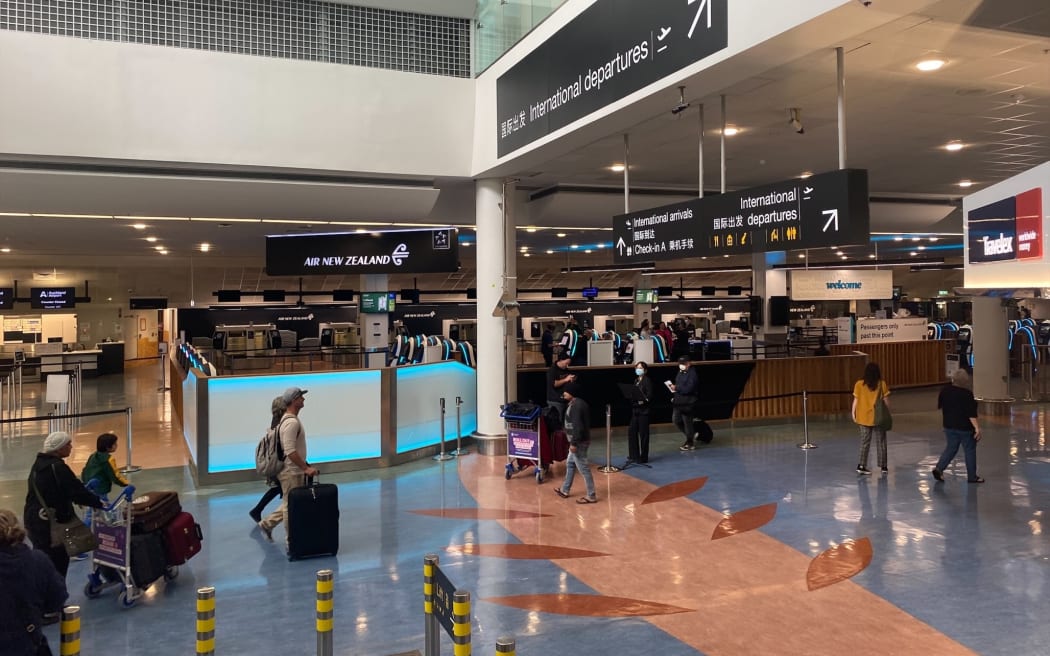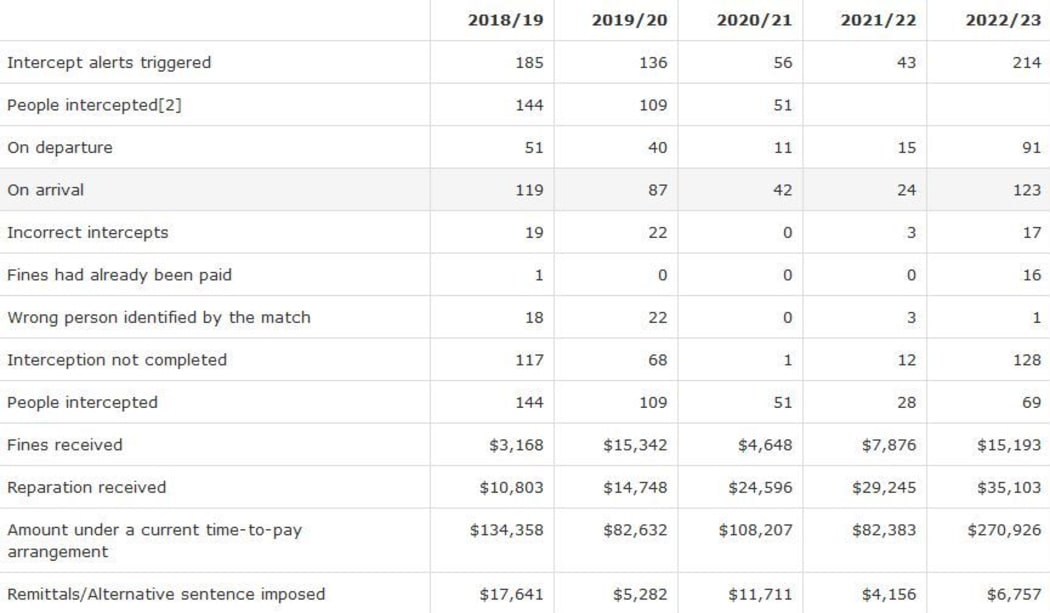
Fine defaulters could once be matched to departure and arrivals cards. File photo. Photo: RNZ / Katie Todd
Border check changes are helping fines defaulters who owe less than $5000 to avoid being caught on their return to New Zealand.
The government repeal of a power dating back to 2006 follows the halt of the 'Silent Alert' data-sharing scheme between the Ministry of Justice and Immigration New Zealand.
For a decade, the Ministry of Justice (MOJ) could match defaulters to departure and arrivals cards - enabling it to find potential current addresses for fines defaulters and collect debts.
But that stopped in 2016, with concerns about the amount of manual work and relatively low returns, and departure cards were dropped in 2018.
"In order for Justice to use the information on the arrival/departure cards efficiently, Justice would need digital access to this source of information," said Privacy Commissioner Michael Webster, who oversees data-matching provisions, in a separate review last year.
"This access will shortly be available from the online arrival cards system, however Justice advise that they have no plans to work on reinstating this match."
Based on his recommendation, the government is now repealing the provision allowing the Silent Alerts programme to operate.
Police will still be able to stop someone at the airport under an Interception Alert - what has been called Pay or Stay - but only if there is a warrant to arrest and there are reparations involved, or the fine is more than $5000.
Figures from 2016 show 1586 silent alerts were triggered, against 230 interception alerts.
"The Silent Alert programme stopped operating in 2016 due to the significant manual resource involved and diminishing success rate," said MOJ service delivery group manager Tracey Baguley.
"The ministry continues to utilise intercept alerts which allows the police to stop travellers at the airport with outstanding fines or reparation.
"Stopping people who owe fines or reparation is an effective tool for encouraging people to resolve their debt. At this stage there are no plans to reinstate the Silent Alert programme, as the Ministry has a variety of other effective data matching programmes for tracing fines defaulters. However, this doesn't prevent the Ministry from starting a similar programme under new legislation in the future."
The ministry also used other data-matching programmes with the Ministry for Social Development and Inland Revenue to find fines defaulters, she said, and credit reporting agencies can run checks for outstanding fines.
Fines recovered
Delays in receiving information from Immigration New Zealand (INZ) led to an MOJ halt on processing data-matched information for six months in 2016.
"Justice considered that the age of the information meant it was unusable for the collection and enforcement of fines," a Privacy Commission report from 2017 said.
In a 2022 review of data-sharing practices, the Privacy Commissioner noted the Silent Alerts programme was "one of a number of initiatives that Justice has used to locate people with outstanding fines. The use of multiple sources of information contributes to the success of Justice's programme to recover outstanding fines".
Silent Alerts showed $180,000 in fines had been recouped in 2011, with $92,000 being repaid over time and $195,000 in remittals or alternative sentences. By 2016, that had fallen to $4000 repaid, $24000 in a 'time-to-pay' arrangement and $5000 in remittals.
The commentary that accompanied those figures noted that the programme also helped MoJ to avoid waste resources unnecessarily chasing defaulters who were out of the country, as well as enabling enforcement action to start promptly on a traveller's return, using the declared address on the arrivals card.
INZ/Justice Silent Alerts Source: Privacy Commission website 2017

Photo: Screengrab / Privacy Commission
Meanwhile, Interception Alerts - Customs and police stopping passengers at the airport using MoJ information - had netted $15,000 in fines and $35,000 in reparation payments, with $270,000 under a time-to-pay arrangement.
As of August 2023, there were 4324 fines defaulters who had interception alerts recorded against their names in Customs records, and 214 alerts were triggered in 2022/23. Seventeen alerts were found to be incorrect.
Customs/Justice Interception Alerts Source: Privacy Commission website

Photo: Screengrab / Privacy Commission


